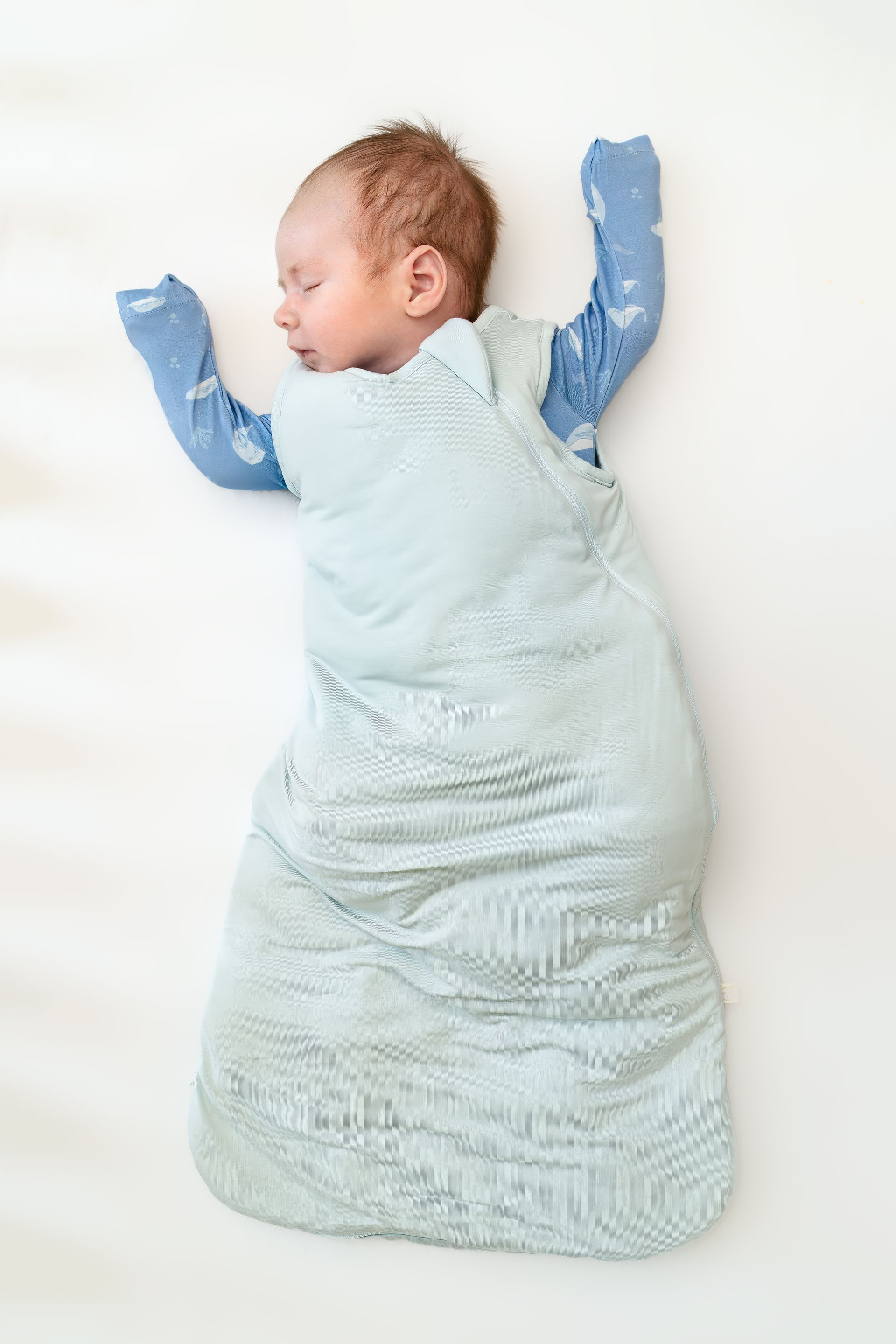5 Things an Early Bedtime can Fix
lbenjell • December 12, 2022
For many sleep issues that parents come to me with, there seems to be a common solution:
An early bedtime.
While an early bedtime isn’t the answer to everything (many factors impact sleep and taking a deeper look into what’s going on can be very telling), this simple change in schedule can fix quite a bit.
I know that for many cultures around the world, an early bedtime isn’t something that’s easily accepted, as it’s common for children to go to bed later in the evening. In fact, I’ve worked with families who came to me with an 11 p.m. or 1 a.m. bedtime for their child.
So I understand that as you read this, you may pushback on this idea.
However, I encourage you to keep an open mind and a willingness to try something new. Who knows…an earlier bedtime for your child may just be the answer you need.
Here are five things that an early bedtime can fix!
Early bedtimes can fix night wakes
If your little one is waking multiple times throughout the night (and it’s not just because they are hungry), it could be because they are overly tired.
I know reading that statement may not compute – shouldn’t overly tired children just sleep straight through the night?!
In an ideal world, yes! But that’s not how our bodies work. When children are tired – maybe they have been skipping their naps, taking short naps, taking a long time to fall asleep at night, staying up late – cortisol, a stress hormone, can interfere with their melatonin production, causing multiple night wakes.
I also want to note that another common cause of multiple night wakes is your child looking for a sleep association. For instance, if your child is used to being rocked or nursed to sleep, when they move through their sleep cycles, they’ll wake up and look for that association in order to fall back to sleep.
If that’s the position you find yourself in, together we can make a plan of action to help your little one learn to fall asleep on their own, so that they can put themselves back to sleep if they wake overnight.
But if your child is falling asleep independently and they’re still waking multiple times a night, an earlier bedtime may be the fix!
Early bedtimes can fix early morning wakes
If your child is waking you up early each morning ready to start their day, taking a look at what time they go to bed is the first step.
Before we go on, let’s define what an early morning wake is.
- Your child wakes up before 6 a.m. and won’t go back to sleep
- Your child is getting less than 11-12 hours of overnight sleep
If both of these points apply to your child, then you’ve likely found yourself in an early morning wake
situation.
Children need to sleep a certain amount of hours each night, and if they’re waking up early, it’s likely because their circadian rhythm is “set” to that wake time.
By putting them to bed earlier, we’re allowing them to clock more hours each night, giving them the rest they need.
I know many parents worry that if they put their child to bed early, then they’ll just wake up early. But surprisingly, that’s not always the case. In fact, many parents find that when they put their child to sleep earlier, they end up sleeping longer, or at the very least, getting the appropriate amount of sleep for their age.
Early bedtimes can fix bedtime pushbacks
If bedtime in your house involves…
Your child having a hard time falling asleep each night
Crying, protesting, or asking for a million things before settling into bed
…then you may want to consider an earlier bedtime.
Bedtime pushbacks may look differently based on the age of your child, but if bedtime brings dread to everyone in your house because it takes such a long time, I encourage you to evaluate the bed time.
Pushback or even just trouble falling asleep at bedtime comes back to your child’s circadian rhythm. When your child stays awake longer than their internal clock, they will get a second wind of energy that pushes them to stay awake – even though their bodies may be ready to sleep.
Because of this extra energy, your child’s body thinks it needs to stay awake, and even though it may be late, their bodies just won’t be able to do what it needs to do to fall asleep.
But when you get ahead of this second wind of energy, you can get your little one to bed at just the right time.
Early bedtimes can fix rowdy periods leading up to bedtime
The other thing that second wind of energy can bring is tantrums.
Or super excited children, whose last thought is bedtime.
If the moment you announce it’s time to get ready for bed your child begins to run around, laugh, jump on furniture, or throw the biggest tantrum you’ve seen, it’s not because they need to “get that energy out.”
This is a common sign that we’ve missed their ideal bedtime (according to their circadian rhythm) and may want to pull bedtime a little earlier.
Of course, if you experience tantrums and running around regardless of the bed time, you may want to evaluate your bedtime routines
to really ensure they are setting your child up for a great night’s rest.
Early bedtimes can fix parent-to-parent quality time
As much as you love your child, having time to yourself or to spend with a significant other is important.
But when your child goes to bed at 11 p.m. each night, you likely will find that you aren’t left with much time for bonding.
Not only will an earlier bedtime allow you to sit with your partner and watch a movie or play a game, but it also opens the door for fun date nights. While you’re away, you won’t have to worry about whether the babysitter is handling things okay – you’ll know your children are tucked away in bed safely, and you can sit back and enjoy your evening out.
I know that an earlier bedtime won’t work for every family.
But if you have the option to move your child’s bedtime earlier, I highly recommend you try it and see what happens. Give it a week and then report back to me! You can find me over on Instagram!

Choosing a car seat is one of the most important decisions you’ll make as a parent. It’s not just about convenience — it’s about giving your child the best protection on every journey . In the UAE, where we drive long distances, face busy roads, and deal with extreme heat, the right car seat matters more than ever. But with so many options, how do you know which one to choose? Here are our top 4 tips to make car seat shopping easier — and safer. 1. PRIORITIZE SEATS THAT UNDERGO THE TOUGHEST CRASH TESTING Not all car seats are created equal. Many parents think if a seat is “legal,” it must be safe — but that’s not always true. ECE R44 : The most basic standard, now phased out in Europe. ECE R129 (i-Size) : Stricter testing with better head, neck, and side-impact protection. The Swedish Plus Test : The toughest crash test in the world — and the gold standard. What makes the Swedish Plus Test so important? It’s the only test that measures neck forces on a child’s body in a crash. Seats that pass prove they can keep neck loads below dangerous limits — a key factor in preventing serious injury. Many car seats fail completely under this extreme test, which shows just how high the bar is. 👉 If a car seat has passed the Swedish Plus Test , you can be confident it offers the highest level of safety for your child. 💡 Remember: Legal does not always mean safe . Go beyond the minimum. 2. CONSIDER YOUR CHILD'S HEIGHT, WEIGHT, AND AGE — EVEN THE SMALLEST ONES Every child grows differently, and size matters when it comes to safety. Preemies and smaller babies : Standard carriers often don’t provide the right fit. They need extra support for the head, neck, and body, plus proper harness positioning. Twins or multiples : Planning seating for two (or more) at once requires careful choice so every child gets the safest setup. As children grow, their height and weight percentiles determine how long a seat will last. We recommend car seats with at least a 25kg weight limit and 125cm height limit , which allow for extended rear-facing travel . Why rear-facing ? Research shows it is up to 5 times safer than forward-facing for children up to 6–7 years old. Better crash force distribution across the strongest part of the body. Superior head and neck protection , preventing the whip-forward motion that can cause spinal injury. Cocoon-like shell protection against front and side impacts. 💡 Bonus for UAE parents: The BeSafe Go Beyond with Preemie Inlay was designed with neonatal nurses to support even the tiniest babies. It features a removable wedge for better harness fit and breathable mesh fabric — keeping your baby safe and cool in our hot weather. 3. MATCH THE CAR SEAT TO YOUR CAR AND LIFESTYLE Your car seat needs to fit not just your car — but your daily routine . Multiple cars? Choose a seat that’s easy to install/uninstall. Growing family? Invest in a seat with a long lifespan that can be passed down. Seat placement? Consider if it will go behind the passenger, in the middle, or side by side with another child seat. Bigger families? Narrow but safe seats can fit 3-across or work well in 7-seaters, without compromising protection. Example from our family setup: Mummy’s car : BeSafe Flex Fix 2 for Sofia (8y) + BeSafe Stretch for Leo (5y). Daddy’s car: Axkid One3 for Leo + BeSafe Flex Fix 2 for Sofia. The Axkid One3 was chosen because Daddy often removes the seat, and installation takes under 30 seconds . 👉 Key takeaway: The “best seat” isn’t the one your friend uses — it’s the one that fits your child, your car, and your lifestyle . 4. DON'T COMPROMISE — BUY FROM A CHILD CAR SEAT SPECIALIST Buying from a specialized retailer ensures peace of mind: They recommend a seat that fits your child, car, and routine . They install it correctly and show you how. If the seat doesn’t fit, they won’t install it — and they’ll help you find one that does. They’ll reinstall it whenever you need , for example when changing cars, at no extra cost. At Safety On Board , we offer 1-1 car seat consultation and hands-on support to make sure your child rides safely every time. FINAL THOUGHTS A car seat isn’t just another baby item — it’s life-saving equipment. Whether you’re bringing home a preemie, juggling twins, or moving a big kid into a booster, the right seat + the right suppor t makes all the difference. If you’re unsure where to start, contact us and book a consultation with us. We’ll help you find the perfect fit for your child, your car, and your family. Because every child in the UAE deserves the safest ride 💛 Sophie Huang is the founder of Safety on Board , the UAE’s first child car seat specialist. She is also a mom of 2 and an internationally certified car seat expert . With a passion for keeping children as safe as possbile on UAE road, she guides parents in choosing and installing the safest car seats. Sophie believes safety can be simple, stress-free, and empowering for every parent.

There’s something magical about a beach holiday — the sound of waves, salty air, and the promise of slow days in the sun. But let’s be honest: traveling to the beach with a baby isn’t exactly a vacation unless sleep is part of the equation. Whether you're heading to a resort, renting a seaside villa, or visiting family by the coast, here’s how to set your baby up for restful sleep — so everyone gets to enjoy that ocean breeze. Step 1: Know That Sleep Needs Don’t Take a Holiday Babies are creatures of habit. Their little bodies thrive on rhythm and predictability — even on vacation. But that doesn’t mean you can’t have fun or go with the flow! It just means that your baby’s sleep needs are still there, and the better prepared you are, the easier it will be to keep things (mostly) on track. Step 2: Your Beach Baby Sleep Packing List Here’s your ultimate baby sleep packing list for a beach trip, broken down by category: Sleep Environment Essentials : Portable travel crib or bassinet – Choose one your baby is already familiar with if possible. Fitted sheets – Bring 2-3 just in case of sand, spills or spit-up. Also bring a gently used one to remind baby of home as he/she adjusts to the new sleep environment. Portable blackout blinds – Beach homes and rentals often have light, sheer curtains. White noise machine or app – Helps block out unfamiliar sounds like waves (yes, they can be loud!) or street noise. Baby monitor (if you’ll be in a larger space or stepping outside during naps). For more on the ideal sleep environment, have a read here . Comfort + Routine : Lovey or comfort object (if age-appropriate and safe for sleep). Sleep sack – Choose a breathable, summer-weight one. Favorite bedtime book – Familiarity brings comfort. Pacifiers – Always bring extras! Nightlight – A soft, warm one if needed for feeds or changes during the night. Weather + Climate Considerations : Lightweight, breathable pajamas – Think cotton or bamboo Fan – If your rental lacks good airflow or AC Bonus Tip: Have a “Nap-on-the-Go” Kit **For beach days that cut into nap time: Clip-on stroller fan Stroller or baby carrier your baby can sleep in Portable white noise machine Extra sun hats + baby-safe sunscreen (for after 6 months old) Step 3: Keep the Routine (Even on the Coast) Try to mirror your bedtime routine as closely as you can. If you usually do bath → PJs → book → feed → sleep, stick with it — even if it’s a quick version. Babies love the predictability, and it helps signal that it’s time to wind down, even in a new environment. Also, aim for naps in a darkened room when possible, especially after a stimulating beach outing. And if one nap has to happen in the stroller under a palm tree? That’s totally okay. Just go back to the routine as soon as you can. Getting There: Travel Day Tips Time your departure around naps if possible Use familiar sleep items (like the sleep sack or pacifier) during flights or drives Offer extra feeds — travel is dehydrating, especially in hot weather Keep expectations flexible – sleep may not be perfect, and that’s fine Beach trips with a baby can be full of joyful memories and restful nights — as long as you plan for sleep. With the right gear and mindset, your little one can stay well-rested and content, giving you more time to soak up the sun (or at least drink your coffee while it’s still warm!). And remember: sleep doesn’t have to fall apart just because you’re away from home. If you ever feel stuck or unsure about how to adjust things before, during, or after a trip, I’m here to help you build a personalized plan that fits your family’s travel style. Book your discovery call here .

October is SIDS Awareness Month, dedicated to raising awareness about Sudden Infant Death Syndrome. It’s a time to educate parents and caregivers on safe sleep practices that can reduce the risk and help protect our little ones.. At Hushabye, safety is at the heart of our brand. Our focus is on providing parents with safe and high-quality baby sleepwear, such as sleep bags, that offer a safer alternative to traditional blankets. What is a baby sleep bag? A baby sleep bag, also known as a wearable blanket or sleep sack, is a specially designed garment for infants and young children to wear during sleep. The primary purpose of a sleep bag is to keep the baby warm and comfortable, but it also serves as a safe and convenient alternative to traditional blankets and quilts in a crib or cot.


